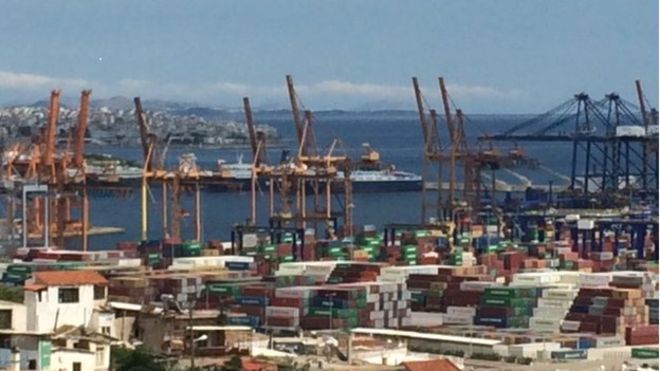Five years into its austerity regime, the Greek government has once again had to go cap in hand to its creditors and ask for more money.
But the country's complex tax system seems to be one of its biggest hindrances.
The former head of Greece's tax collection agency, raising taxes in the midst of the financial crisis, told the BBC "it was not an easy job to do".
Probably a masterful understatement, given Greece's recent past.
Harry Theocharis is now an MP, but used to be the most wanted man in Greece - and not in a good way.
It was his job to try to raise taxes in the middle of the financial crisis and try to reform the notoriously inefficient tax system itself.
"You make everybody's life difficult... it doesn't make you popular at all," he said.
Amazingly complex
To give just one example of the complexities Mr Theocharis wrestled with: in Greece there are six different rates of VAT. One normal rate of 23%, then two reduced ones for things such as food, fuel and medicine.
But the Greek Islands enjoy reduced rates of VAT to encourage people to stay in remote parts of the country and to help the vital tourism industry there.
That makes six rates in all, and creates plenty of opportunities for dodging tax.
A recent surge in tourism on the island of Mykonos for instance seems to have lead to lower payments of VAT to the Greek Government.
Greece also has a pension system that is amazingly complex, with numerous exceptions for different jobs allowing for early retirement.
The pensions are not very generous on average, but overall the Greek government is spending 30% more on pensions than the British government does, and the whole system is in desperate need of simplification in order to make it cheaper to run.
Then there are the privatisations. At the start of the crisis, the Greek government committed itself to bringing in €50bn from the sale of state assets. According to Harry Theocharis that target was soon reduced to €30bn and then €20bn.
In total, the government has managed to raise about €2-3bn so far.
Things like the privatisation of the port of Piraeus are supposed to be bringing in more, but they have been delayed, cancelled and then relaunched.
Then there are the cuts that have been reversed; such as the reopening after two years of the state broadcasting company ERT, which started programmes again this year.
The problem therefore is not so much that Greece is incapable of reform or does not know what needs doing, but that it has wasted five years of the bailout without making serious attempts to fix the structural problems that beset the economy - and in many cases it is actually going backwards.
If it had started five years ago it might have been seeing the results by now as countries like Ireland and Spain have done, but one of the reasons that the Greek bailout has reached another crisis point is that it has hardly started.
It is not the kind of record that is likely to make the countries that are lending Greece all that money trust them with some more.
(BBC)
www.ann.az
Follow us !











